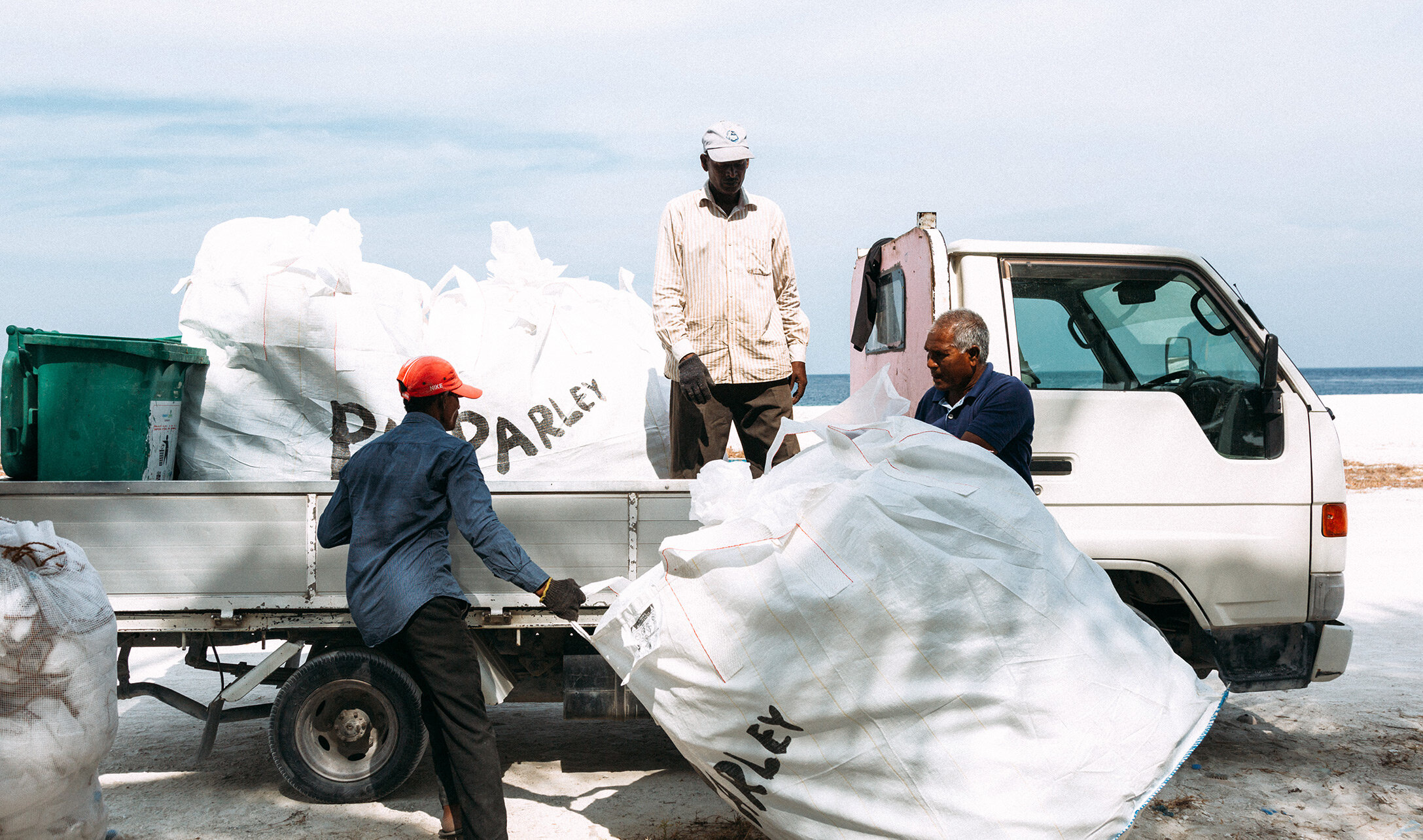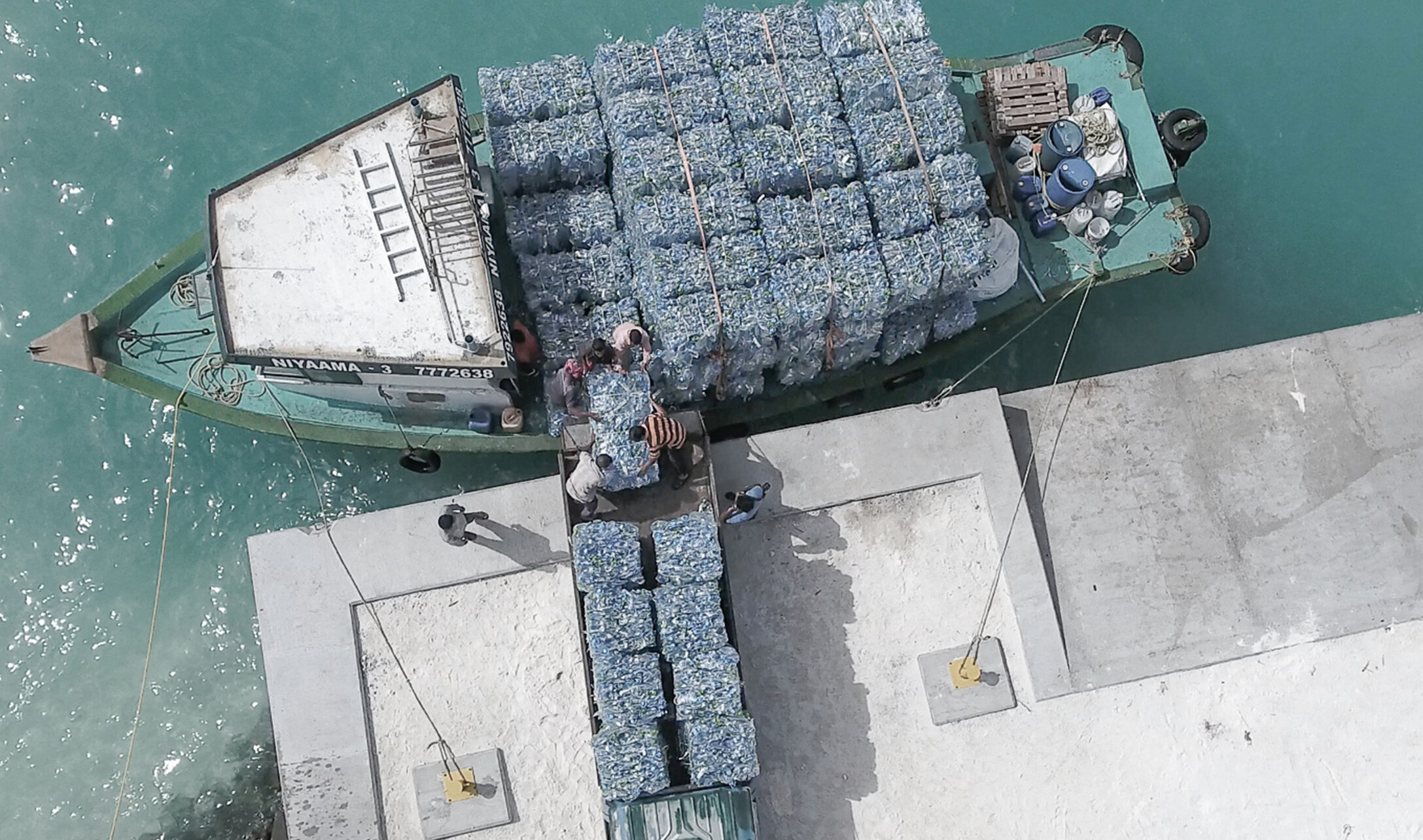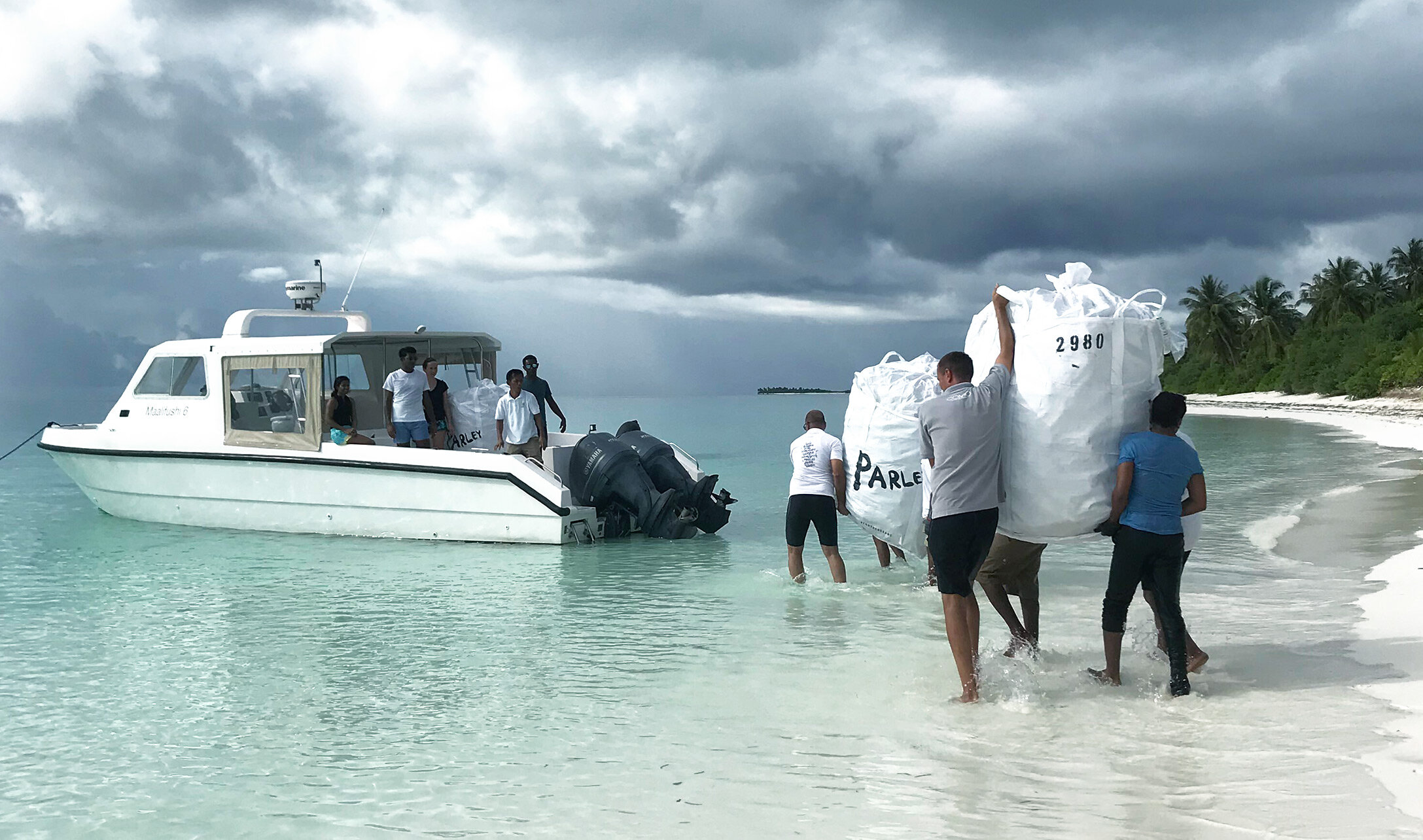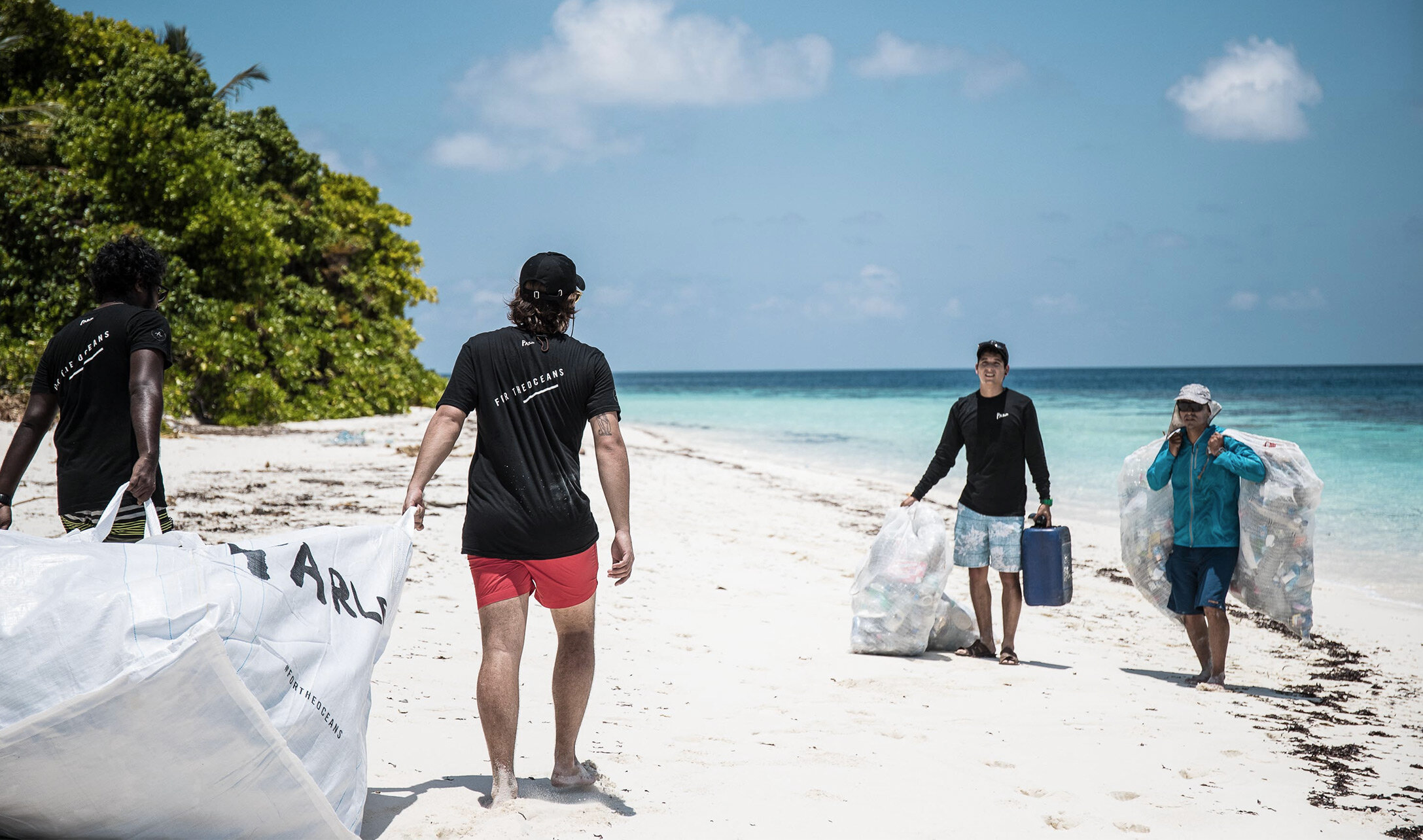ISLANDS AS BLUEPRINTS FOR A GREEN PLANET
HOW CLEAN WAVES USES BEACHES AS CLASSROOMS AND REMOTE ISLANDS AS LABORATORIES FOR CHANGE
Islands have always had a very special focus for Parley. In 2017, Parley struck a partnership with Corona to protect 100 islands around the world from plastic pollution. A couple of years later, at the United Nations’ General Assembly, the presidents of the Maldives and Antigua & Barbuda signed on to become partners of Parley’s Future Islands Nations program to develop new economic models which relegate harmful materials and exploitative business practices to relics of the toxic past. But why does Clean Waves focus on islands, and not continental coastlines?
WHY ISLANDS?
We love islands because they show us how humans have organised themselves in a very transparent way. Bigger countries have so many hiding grounds, places where you can put trash and building practices away, but you can’t hide on islands. Everything is visible, and in strong contrast to this magic universe below the water and the breath-taking beauty above: the birds, the sand, the exotic flowers — life.
Humans intruding into paradise in our very heavy-handed way is nowhere as obvious as on an island. On the other hand, islands are often very undeveloped. There isn’t the infrastructure that you see in big, developed countries. They often don’t have roads or waste management. This is a disadvantage — and plastic, an alien matter, makes that very obvious. On the other hand, not having the infrastructure is a big opportunity as it allows you to create one.
ISLANDS AS BLUEPRINTS FOR THE FUTURE
Islands are canvases, and island nations are laboratories for us because we don’t have to fight old technologies and infrastructures for waste. As most of the products are imported, you can bring change to the table very quickly – you can hop over a technology that has been harmful in our world and introduce a new generation of materials, products and business models.
Islands often depend on tourism as a business model. This means they need life, healthy corals, a protected marine environment, otherwise they’re not attractive anymore. And then on the other hand, these islands’ economies often depend on fishing, and if they’re overfishing they are losing the second pillar of their economy. So, it’s very obvious for island nations that their existence depends on the survival of life in the oceans, and that is a big motivation.
Islands stand for paradise. They stand for this place far away from everyday life — we dream of islands, we dream of these places that allow us to escape the stress we experience from everything that is harmful, toxic, and unhealthy. Showing these islands under attack by our inventions, creations, technology and designs shows that there is no ‘away’ anymore. We have to understand that this whole planet is smaller than we think.
CREATING CHANGE ISLAND BY ISLAND
We don’t believe you can change a country from outside — this change has to come from within. What we do first is find the right people who understand and have the passion; we want to help through educating and empowering them. Out of that, you grow a different understanding of life in the oceans. You do that by getting people into the water, and you start with the schools.
By getting schoolchildren to swim, to dive, they suddenly discover that the majority of their country exists underwater. The moment you go deep, meet life under there and encounter these majestic creatures, you develop respect, curiosity, and you want to explore and know more.
In one year in the Maldives, Parley has got over 100,000 kids to snorkel and explore their reefs. They go home and share their experiences, and suddenly these animals are no longer a product, a food — they are their neighbours. This excitement is what we need.
PARLEY AIR
The moment we excite enough people to address the issue of plastic pollution, from the government to private sector, and some influential families, we start a pilot project to install some infrastructure and start beach clean-ups. We implement the A.I.R. (Avoid. Intercept. Redesign.) strategy on an island by AVOIDING plastic and by INTERCEPTING trash, which you can do in the rivers and the beaches.
We also want to show people that trash-picking is not an underpaid job for people who can’t do anything else. The people who engage with us are environmentalists and activists, and they’re also inviting friends, neighbours, politicians and media to join them and use these moments to reflect and meditate on widespread design failures — because nowhere is it more obvious that these materials are wrong than when you’re standing on a white beach confronted with this trash. That is the simplest way to educate people. Beaches are our classrooms. From there you can begin to REDESIGN the material.











